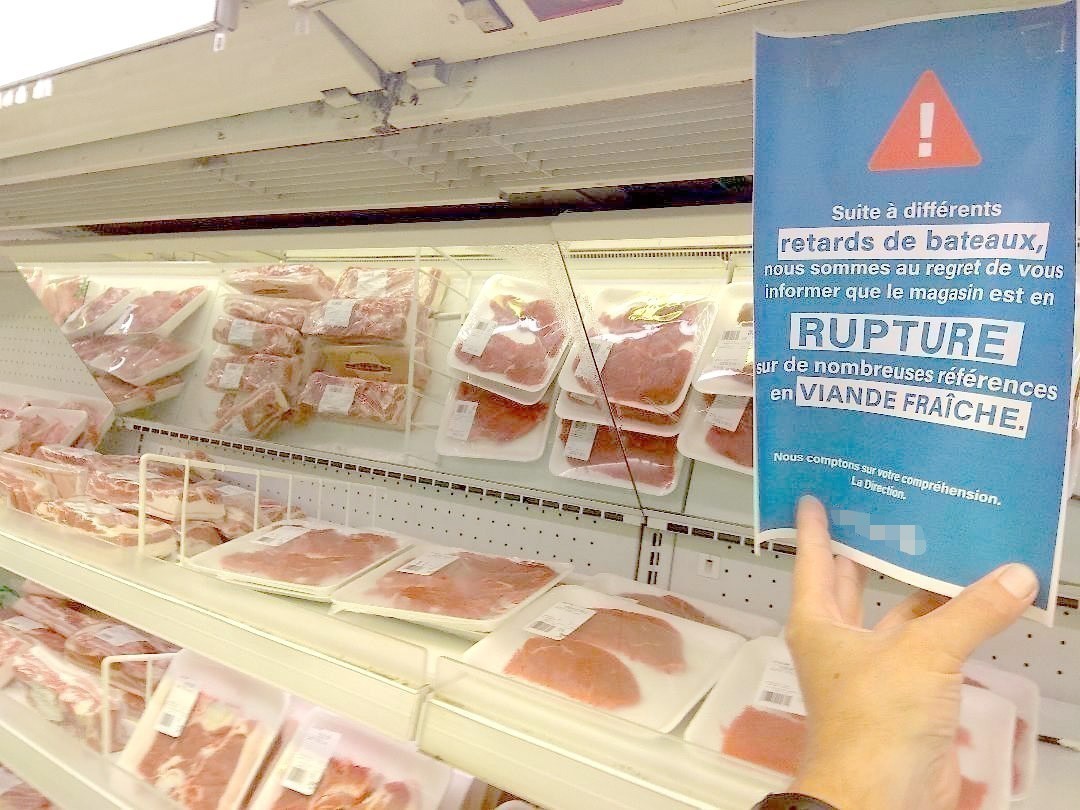
The steak and potatoes are the victims of the shortage
via Damien Grivoie
Posted in

“I want steak,” Tehiura enjoyed singing on Koh Lanta, before his recent food problems.
Usually, this is not a problem, but some time ago beef and lamb were a rarity, both in wholesalers and on store shelves and supermarkets. The shipping error is largely unregulated at the global level due to the Covid-19 crisis and is punished by the absence of available empty containers. Boats to Tahiti are sometimes several weeks late. “It’s very simple, since Wednesday I’ve run out of meat and I can’t serve steaks and fries to my customers, while that’s what they’re looking for,” explained Mary, Chez Arii trailer manager in Pirae yesterday, which in turn leads to lower sales. “Other trailers still have meat, but stocks are quickly running out. Now the retail shortage is coming.”
Can trailers, for example, retract white meat? Of course there is chicken available. But working with chickens only is not possible. “Supply problems have been happening since the start of the Covid crisis. But the rupture is unprecedented,” comments Maxime-Antoine Michel, representative of the Federation of Restaurants, Bars and Snacks, affiliated with the Federation of Small and Medium Enterprises (CPME).
French Polynesia buys beef and lamb from New Zealand, due to its “high quality” meat and very competitive prices. “But one in two, or even one in three, boats from Auckland arrives at Papeete, it is really too complicated for the importers.”
Stocks running out
According to him, all supplies from Europe or the United States are going relatively smoothly. “On the other hand, for everything that comes from the Asia Pacific, it’s been a real disaster for about a year,” said Maxime-Antoine Michel, realizing that some restaurants are already being penalized and have to change their menu. Most of them “are still able to cook fresh meat thanks to their stock and that of wholesalers.”
Yinket in Titioro, a wholesaler in Tahiti, understands that the Covid crisis and its consequences are testing their “resilience and innovation”… Nearly 100% of New Zealand meat is transported by sea. “We only use air when we have problems with the sea, but the cost difference is too big. Stock is running out more quickly as some containers are now blocked in customs areas due to the general strike movement. All the meat waiting in the port has already been sold out,” the representative of the restaurant union noted. « À très court terme, les restaurants devraient pouvoir s’en sortir, mais la semaine prochaine, ils seront proches de la rupture… », estime Maxime Antoine-Michard qui indique encore que le prix de la viande n’arap pasé However, this may be the case in the future, in light of the evolution of the cost of sea freight, which, according to him, would have risen “from +30% to +100%”.
Was this article helpful to you? Note that you can follow La Dépêche de Tahiti in the Mon Actu area. With one click, and after registration, you will find all the news of your favorite cities and brands.

“Organizer. Social media geek. General communicator. Bacon scholar. Proud pop culture trailblazer.”
